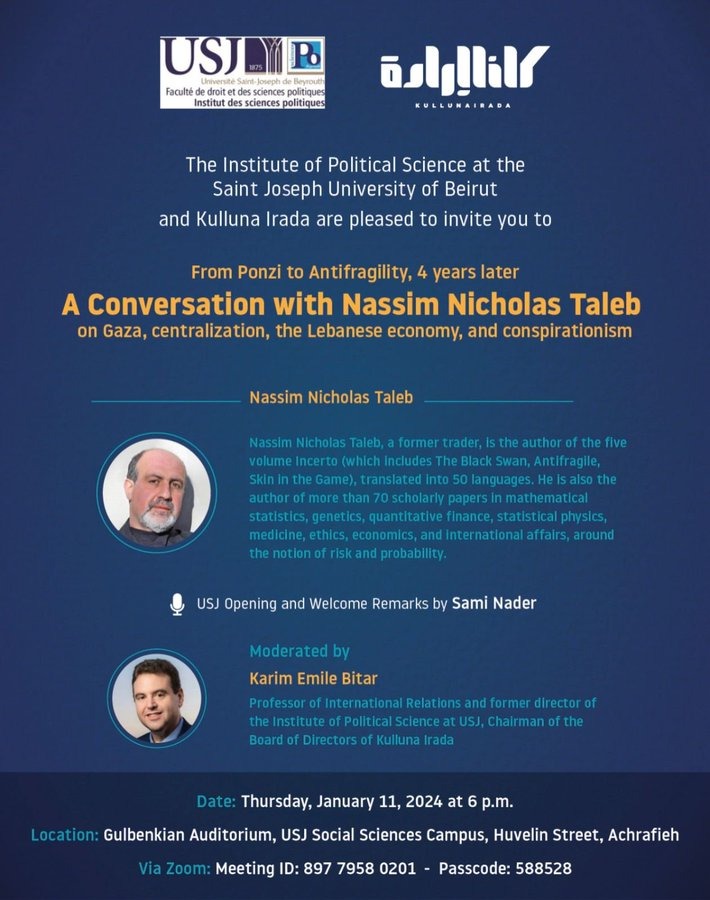Event Invitation: A Conversation with Nassim Nicholas Taleb
Hosted by: The Institute of Political Science at the Saint Joseph University of Beirut and Kulluna Irada
Event Title: From Ponzi to Antifragility, 4 Years Later
Featuring: Nassim Nicholas Taleb
Topics: Gaza, Centralization, the Lebanese Economy, and Conspirationism
Moderator: Karim Emile Bitar
Date and Time: Thursday, January 11, 2024, at 6 PM
Location: Gulbenkian Auditorium, USJ Social Sciences Campus, Huvelin Street, Achrafieh
Virtual Attendance via Zoom:
- Meeting ID: 897 7958 0201
- Passcode: 588528
Join us for an insightful evening with Nassim Nicholas Taleb, discussing critical contemporary issues in a conversation moderated by Karim Emile Bitar.

